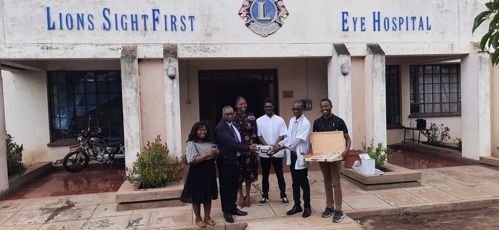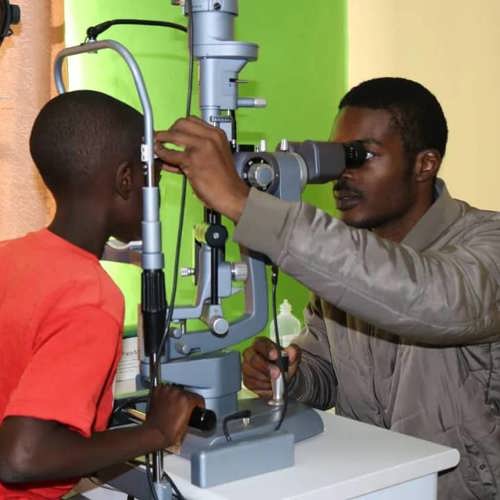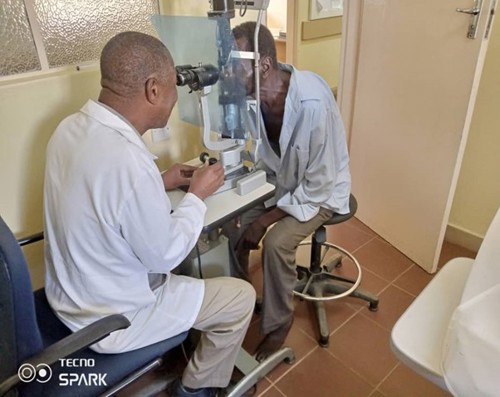Building Capacity to Improve Cataract Surgical Services in Malawi, Southern Africa
Malawi is a poorly landlocked country in Southern Africa, where access to quality eye services remain a challenge. Through support from ESCRS, BICO is implementing activities to fill up the gap of refresher trainings and elective replacements.
How important is the BICO project?
 Malawi is a poorly landlocked country in Southern Africa, where access to quality eye services remain a challenge. Cataract is the number one cause of blindness in Malawi, contributing to half of all cases in persons aged 50 and above. With only 14 Ophthalmologists available to a population of 20 million residents of Malawi, the National Eye care program decided to “Task Shift” and recommended that midlevel health personnel known as “Cataract Surgeons” should be allowed to operate to fill the gap for those in need of cataract surgical services. Additionally, a training program for Ophthalmologists was introduced within the country, producing 1-2 ophthalmologists per year.
Malawi is a poorly landlocked country in Southern Africa, where access to quality eye services remain a challenge. Cataract is the number one cause of blindness in Malawi, contributing to half of all cases in persons aged 50 and above. With only 14 Ophthalmologists available to a population of 20 million residents of Malawi, the National Eye care program decided to “Task Shift” and recommended that midlevel health personnel known as “Cataract Surgeons” should be allowed to operate to fill the gap for those in need of cataract surgical services. Additionally, a training program for Ophthalmologists was introduced within the country, producing 1-2 ophthalmologists per year.
Despite a good number of Cataract Surgeons graduating and been posted to remote eye hospitals to perform cataract surgery, there is hardly any follow up on them, and they do not go for refresher courses. We know that regular supervision and skills refresher courses are critical to maintain quality of cataract surgery, but due to lack of financial resources, these have not been routinely implemented. Through support from ESCRS, BICO is implementing activities to fill up the gap of refresher trainings and elective replacements.
 The overall goal of the support is to build capacities of different eye units in Malawi (Blantyre, Lilongwe, Zomba and Mzuzu) to support cataract surgeons refresher trainings as well as to support registrars in training, to improve outcomes of cataract surgical services, through addressing issues of case selection, surgical procedures through surgical training and provision of eye equipment, and reducing long term cataract sequel, through provision of good post operative care.
The overall goal of the support is to build capacities of different eye units in Malawi (Blantyre, Lilongwe, Zomba and Mzuzu) to support cataract surgeons refresher trainings as well as to support registrars in training, to improve outcomes of cataract surgical services, through addressing issues of case selection, surgical procedures through surgical training and provision of eye equipment, and reducing long term cataract sequel, through provision of good post operative care.
How significant has the support from ESCRS been?
The support from ESCRS for the first year has been able to:
- Enhance training of ophthalmic registrars in cataract surgery through placements for elective attachments in areas where high volume cataract surgeries are performed.
- Allow Cataract Surgeons to attend skills refresher trainings at different eye hospitals within Malawi.
- Provide additional Ophthalmic instruments and equipment for training.
- Train and refresh mid-level eye health personnel in primary eye care including cataract case identification, case management and case follow up for adult and child cataract cases to have a comprehensive eye care program.
 So far, three Ophthalmologists, two registrars in training for Ophthalmology, and eight Cataract surgeons have benefited from this initiative, and participated in various capacity building activities for cataract surgery. A total of 183 sight restoration surgeries have been performed up to date, and cataract surgical outcomes have been monitored with good progress. Supervision of cataract surgeons has been enhanced. Support for equipment to monitor progress of cataract surgery has been provided to registrars in training.
So far, three Ophthalmologists, two registrars in training for Ophthalmology, and eight Cataract surgeons have benefited from this initiative, and participated in various capacity building activities for cataract surgery. A total of 183 sight restoration surgeries have been performed up to date, and cataract surgical outcomes have been monitored with good progress. Supervision of cataract surgeons has been enhanced. Support for equipment to monitor progress of cataract surgery has been provided to registrars in training.
BICO would like to thank ESCRS for the gesture, as without their financially support, the advances made would not have been possible. As this will be a 3-year project, it is envisaged that more successful stories will come out of the interventions in Malawi.
Reported by: Dr Khumbo Kalua, Project Coordinator.




Published